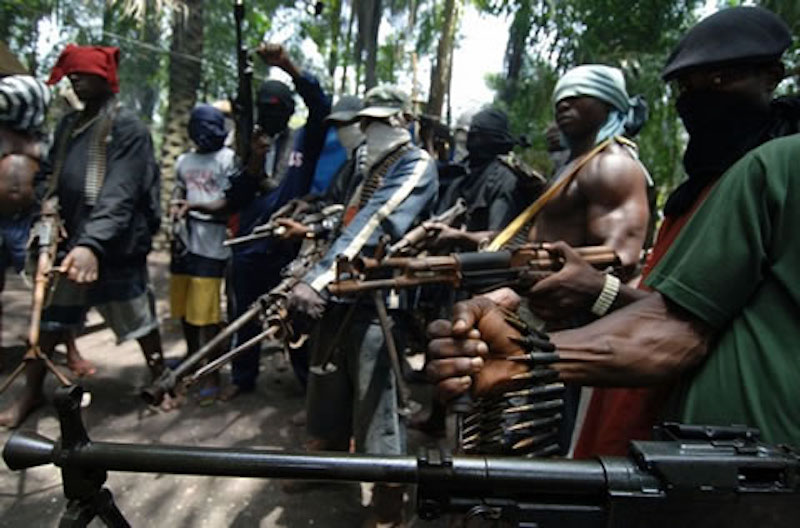One of Nigeria’s newspapers, Leadership, has reported the presence of about 200 unidentified men suspected to be bandits, who were dropped off by a truck in Sabon Wuse area of Niger State, a border town with Bwari, Abuja.
The report added that consequent upon the discovery, most private schools in the metropolis have closed down and ordered pupils and students to vacate premises.
The newspaper publication narrates as follows:
Despite assurances by the police authorities that Abuja is safe, private schools in Bwari Area Council of the Federal Capital Territory, yesterday, hurriedly shut down their activities over fear of possible attack by kidnappers.
LEADERSHIP learnt that some schools hurriedly sent their students home when news got to them over 200 unidentified men suspected to be bandits were dropped by a truck in Sabon Wuse area of Niger State, a border town with Bwari, Abuja.
A source told LEADERSHIP that some private schools closed their schools with instructions to student to remain at home till further notice.
Some parents who do not want their identities revealed told our correspondent that the schools gave the instructions on various group WhatsApp platforms of the schools.
LEADERSHIP gathered that in the last two weeks, over ten persons have been kidnapped in Bwari area council with ransom of about N10million paid to secure their release.
Last week, about seven persons were kidnapped in Sabon Fulani area of the council and about N5 million ransom was said to have been paid.
According to residents, the fear was heightened following the report that over 200 unknown persons were dropped from a truck in Sabon Wuse area.
A parent who spoke to LEADERSHIP said, “We were asked to come for our children in their school before the time they were supposed to close for the day.
”I don’t know if they will be going to school tomorrow because we are still waiting for further directives from their school group WhatsApp platform”, the parent, who does not want her identity revealed said.
Another parent told LEADERSHIP that there was specific instruction for students to remain at home until further notice from the school authorities.
”My children came back home before the usual closing hour. When I enquired, the school said there were reports that kidnappers had surrounded Bwari area council and they (school authorities) do not want to be responsible for any kidnapped student, hence the closure of the school.
”As we speak, the school has been shut down indefinitely,” he said.
Some of the schools in Bwari area council that sent their students home yesterday for fear of possible attacks by kidnappers include De-Goopherwood Montessori School (close to Nigerian Law School), Glorious Bright School, Tundun Fulani and Asusi International School.
A parent, who has children at Glorious Bright School said she got a call from the school management to come and pick their children before the normal closing hour for fear of attacks by kidnappers. Another parent who has children at De-Goopherwood Montessori School also confirmed that his children closed before the normal closing hour.
According to her, the students were asked to go home after information got to them that there is a likelihood of a breach of security in Bwari.
LEADERSHIP learnt that Veritas University, in Bwari, has been closed down and students sent home.
According to a senior lecturer of the school, who said she was not authorised to speak with journalist, ”The school was shut this morning by the vice chancellor. ‘We received a circular that everyone should vacate the school by 11am today (yesterday).”
She said the students had been on holiday since last week but the academic staff and other staff were still going to school before the circular was sent out.
”Though the students were on holiday, we were still going to school until we got a circular today (yesterday) from the office of the Vice Chancellor that everyone should leave the campus,” the source said.
Another polytechnic in the area also sent its student out of the hostel.
A 200-level student of Dorben Polytechnic, Bwari, told LEADERSHIP that the school authorities issued a circular asking the students to vacate the hostels and that henceforth they will holding lectures online.
The student who studies public administration at the polytechnic said all the student promptly complied with the directive and quit the hostels.
About three days ago, the FCT Police Command faulted information that the territory was under possible the attack of Boko Haram terrorists. The command had, in a press statement by the Police Public Relations Officer (PPRO), ASP Yusuf Mariam, said, “The attention of the FCT Joint Security Team has been drawn to a viral publication in the social media purporting that the ‘Federal Capital Territory is under the attack of Boko Haram Terrorists’.
”The Joint Security Team of the FCT wishes to refute the mischievous publication targeted at creating palpable tension amongst the well-spirited residents of the FCT.”

 News6 years ago
News6 years ago
 Featured6 years ago
Featured6 years ago
 Boss Picks6 years ago
Boss Picks6 years ago
 Headline6 years ago
Headline6 years ago
 Headline6 years ago
Headline6 years ago
 Headline5 years ago
Headline5 years ago
 Headline6 years ago
Headline6 years ago
 Headline6 years ago
Headline6 years ago













